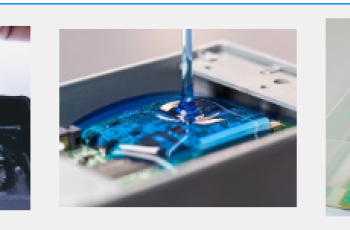Elaplus Explains to You How to Choose Suitable Sealing Materials?
Choosing the appropriate encapsulation material is crucial for protecting sensitive electronic components from adverse environmental conditions. These materials are used to protect equipment from moisture, provide insulation, and help control heat. Each material has unique advantages through options such as epoxy resin, silicone, and polyurethane, depending on the specific requirements of your application. In this article, Yilian will explore the main differences between these potting materials and help you determine which material is most suitable for your needs, ensuring long-lasting protection and optimal performance.Three common sealing adhesivesUnderstanding the unique characteristics of each potting material is crucial when selecting potting materials for your application. The three main sealing materials commonly used in electronic manufacturing are epoxy resin, silicone resin, and polyurethane. Each material has specific advantages and is suitable for different environments and performance requirements. The following is a detailed classification of each sealing material.Epoxy sealant, silicone sealant, polyurethane sealantEpoxy sealant, silicone sealant, polyurethane (PU) sealant Epoxy sealantEpoxy resin occupies a place in the field of electronics due to its powerful comprehensive characteristics. These resins have the following characteristics: ▶ High mechanical strength, providing reliable wear protection▶ High temperature resistance makes it an ideal choice for environments up to 180 ° C▶ Excellent chemical resistance, very suitable for harsh environments that require contact with chemicals or solvents▶ Strong adhesion ensures a strong bond with substrates such as metals, ceramics, and specific plasticsFor example, epoxy resin encapsulation is widely used in motors. These electric motors generate a large amount of heat and withstand continuous mechanical vibrations, which may damage sensitive components. Epoxy resin provides necessary insulation and protection to ensure the long-term reliable operation of the motor, while also preventing electrical short circuits.Read the article to learn more about motor sealing: Motor Sealing | The Best Thermal Conductivity Solution for Electric Vehicle…


